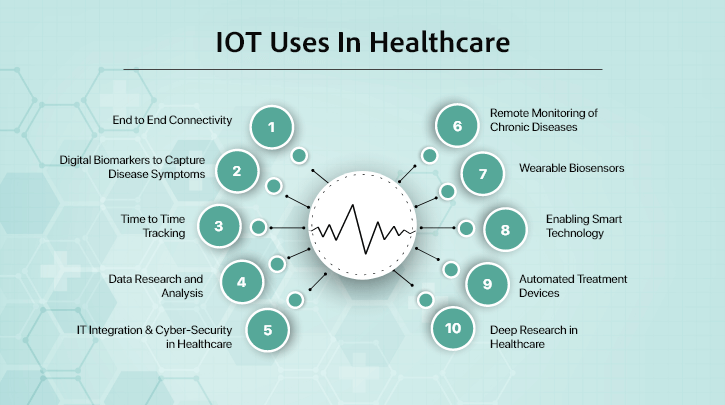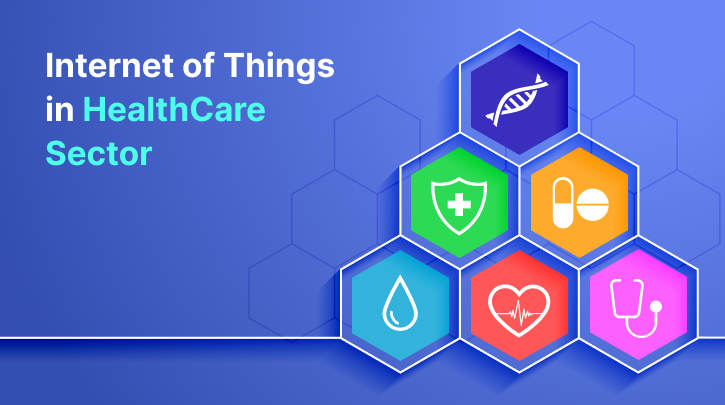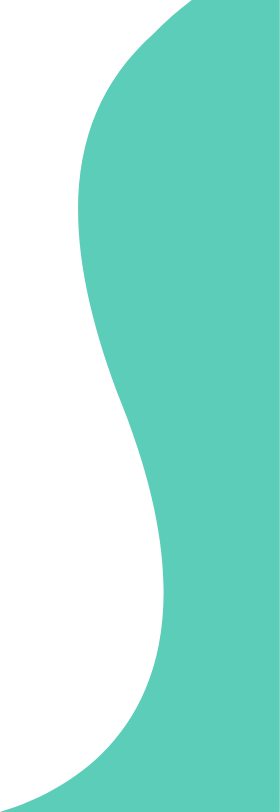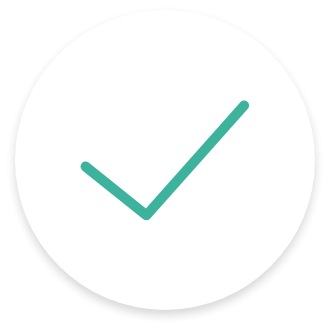The Internet of Things has already changed the way manufactures, Utilities and Industrial organisations operate. IoT technologies are growing rapidly and helping various sectors of society, the Healthcare industry is also one of them. Over the years, the mode of communications between the doctor and patient were through visits and telecommunications only. Now, various modes of communications as well as automatic data collections are available to keep the interaction smooth. But what exactly is IoT?
The internet of Things (IoT) connects various devices around the world and collects as well as shares data efficiently. With the help of advanced and cheap processors, sensors and wifi, it is possible to turn anything into IoT. Integration of IoT based software adds digital intelligence and makes then communicate real-time data without any physical contact or human involvement.
According to multiplier reports by “Market and Market”, the market for IoT based healthcare softwares and wearables are expected to reach $12.1 billion in 2021, thanks to a rapid push by the covid-19 pandemic. Smart hospitals backed by smart softwares are a game-changer in the field of healthcare. As the dependency on technology increases, the Internet of Things covers convenience as well as economic solutions for healthcare professionals.
IoT and Healthcare Industry
The HealthCare Softwares connected with IoT is absolutely a blessing in the healthcare industry. The internet of things in the healthcare sector is making healthcare provide smart, affordable, more efficient as well as making people healthier. The uses of IoT in healthcare are limitless, from medication management to patient monitoring, everything can be done with the help of IoT software. This IoT captured data in turn helps in better research and evidence to understand patients’ health. The internet of things has changed the way how treatments work, a doctor now can continuously monitor patients health and symptoms without doing any tests.
This revolution resulted in affordable and time-saving treatments, improved medical care and enhanced experience. No matter how smart a human can be, he cannot beat the intelligence and power of artificial intelligence. 24/7 monitoring, continuously cloud uploading and finding the most relevant data from thousands of reports in a matter of a few seconds can only be done by AI.
How IoT Works In Healthcare?
In general, IoT powered devices interact with the physical world and send information accordingly. Similarly in the Healthcare sector, IoT based devices gather patients real-time data, 24/7 monitoring and calculate health conditions and send to the functioned devices. Not only do these devices are capable of sending data to the internet but can also take necessary actions if needed to save lives.
For example, these healthcare devices can make decisions like calling an ambulance or medical facility if the elderly person is down for some minutes. Real-time locations are also captured by devices if this type of situation arises. Other than that, the collection of passive data is then sent to the functioned hospital to analyze or act upon it. Therefore, The internet of things helps in critical situations as well as improves patients’ living standard.
Future of IoT in Healthcare
The market of the internet of things in healthcare is only going to increase in the future. It is expected that it will reach $10 billion by 2024. According to Brand Essence market research, The growth forecast can only go up from here as IoT is also dependent on other technologies. Therefore, upgrades in those technologies will impact IoT. For example, 5g networks, Artificial intelligence and Big data combined with ultra-fast 5g networks will only result in positive IoT Transformation. The install base of IoT powered devices reached a whopping $161 million in 2020. We can expect it to pass the $200 million mark by half of 2021 only.
IoT in healthcare using 5g technologies will transform the way records are maintained and patients are monitored. As mentioned earlier, IoT will surely revolutionize the healthcare industry but it will require high data speeds for smooth communication and 5g is the key to help IoT. This is the best time to step into the IoT powered health sector. IoT devices are already evolving in the healthcare sector and we are just a few steps away from when the healthcare sector will completely transform. But why is the future of IoT in healthcare so powerful? In order to understand this, Let’s look at the Role of IoT in HealthCare.
Uses of IoT in Healthcare
The internet of things has significantly increased the level of satisfaction between patients and interaction with doctors is now more comfortable and cost-efficient. IoT is undeniably beneficial for not only medical professionals but also for patients, hospitals and even insurance companies. Medical professionals now can monitor and diagnose patients while enjoying a movie, eating dinner or working part-time. But how exactly the internet of things in the health sector is beneficial for everyone? We have jotted down some point to help you understand.

1. End to End Connectivity and Affordability
With the help of IoT, Technologies are connected with each other. Interoperability, information exchange and data movement within a hospital or between various hospitals are now possible. These IoT based features help the healthcare sector to process data more efficiently. Not only that but because of these next-gen healthcare facilities time and extra costs are reduced significantly such as unnecessary visits and waiting time. Due to human limitations, a constant watch of health is not possible but because of IoT, continuous flow of health data and continuous, the remote watch is now possible. IoT also precise automation of workflow and improves planning and allocation.
2. Time to Time Tracking and Alerts
Critical situations must be taken seriously and should not be delayed. Thanks to IoT, critical medical conditions can be treated on time. Next-gen IoT based devices are capable of tracking real-time data and transferring it to doctors via linked devices or even notifications. This data carefully examines the patient time-to-time and makes a report to send to the doctor irrespective of the place and time. Ultimately, timely intervention by medical professionals improves patient care and sometimes results in live-saving. Therefore, it is true to say that IoT in healthcare is the future of the healthcare industry.
3. Data Analysis
Now we know how IoT based medical devices track the data and send it to the doctor but it will not be possible if cloud services are not available. The humongous amount of data for a short period is tough to store and can be lost easily. Even hospitals get a hard time managing and analysing this much real-time data. These IoT software not only stores and sends the data but also analyzes it in real-time. So that only the useful data can be processed. The complete process takes place inside the cloud and doctors only get the analyzed reports. Thus, it saves time as well as cost.
4. Remote Monitoring of Chronic Diseases
Smart medical softwares and devices offer some of the most needed and immediate benefits such as continuous monitoring of patients irrespective of their place and time. A doctor can efficiently diagnose the patient sitting at home. The great part is, no special training is required to use this softwares, almost every age group of people know how to use a mobile device connected with the internet. Report data such as blood pressure, sugar level and even oxygen can also be transferred to doctors in real-time with the help of wearables connected with mobile softwares.
5. Deep Research in Healthcare
The Internet of Things in Healthcare plays a significant role in deep research. Research on medicines, diseases and even reports are made easy by IoT applications. With the help of IoT, not only does the data collection is easy and less time consuming but also it is now easier to research on. Let’s take the example of the Covid-19 pandemic, The research on different strains in a very short period of time is possible by IoT applications. Data can be sent from one continent to another within a fraction of seconds. In this way, millions are saved that would be needed for research purposes and data collecting.
6. Digital Biomarkers to Capture Disease Symptoms
IoT applications in healthcare are undoubtedly futuristic and digital biomarkers is one of them. These biomarkers not only help in sending informative data like other applications and softwares but capture the symptoms by themselves. Instead of going for multiple tests and reports, a patient can diagnose himself with these biomarkers. These real-time firm and precise reports then can be sent to doctors for confirmation and procedures. Chronic disease monitoring can also be done with these high-tech software applications. These digital biomarkers are proven lifesavers in the tough time of covid-19 lockdowns.
7. IT Integration & Cyber-Security in Healthcare
Hospitals store millions of data files which are crucial as well as needed from time-to-time. Cyber-security is always a concern with these hospitals. In March 2016, a healthcare group named MedStar faced a similar situation when a cyber-attack made their patient files and records unusable. Thanks to IoT based softwares, hospitals do not hesitate anymore and flawless upload files onto cloud servers. IoT based cloud servers are protected by next-gen systems, which are either impossible to crack or are tougher than most cyber attackers. Also with the rise in IoT softwares, we can see even tougher cloud servers in the coming time.
8. Automated Treatment Devices
Automated treatment devices are such devices that help the patient with chronic diseases and elderly peoples. These devices are designed on the pillar of the Internet of Things. Patients who cannot take the medication on time are most benefited from automated treatment devices. The device is connected with softwares installed on mobile phones, smart TV’s or even Amazon Alexa. Alerts and notifications are sent from the automated device to mobile phones and after the button is pressed by the patient, medicational medicines are dispensed from these automated devices. Automated treatment devices are a huge upgrade in the Internet of Things Development.
9. Enabling Smart Technology
Let’s be real, Without IoT powered applications, The Health Industry would not be as strong as it is today. Integrating smart softwares with smart devices helped to achieve the level of connectivity, usability and capabilities. Research on devastating viruses in a short span of time such as Covid-19 is made possible by IoT powered applications. Wearables can track diseases and symptoms without even visiting any clinics. Healthcare services are now easily accessible, affordable and meaningful.
Top Medical IoT Devices
The internet of things has huge potential in the healthcare industry. From wearables to automatic medication machines, IoT powered devices are ruling all over the world. Devices backed by IoT allows patients to be treated at home, helps medical professionals in analysing data and Improves overall healthcare. These devices, whether used for just tracking hearth pulse to clinical efficiency, all lead to manage and improve health conditions. Shortly, these wearables and automatic devices will become as normal as taking paracetamol. Let’s look at some of the popular medical IoT devices.
* Faraday Analytical Cloud
Faraday Analytical Cloud is an IoT based cloud that helps in storing patient records. Not only that but it also analyzes the data by itself to produce specific disease-related data. The computing infrastructure is baked by an artificial intelligence-powered cloud engine. Clinicians can rapidly compute biomagnetic data, images of cardiac functions and generate clinical reports. Faraday Analytical cloud software saves millions of dollars for hospitals by automating and offering various features. This type of cloud server is already used by most hospitals and clinics.
* Medication Dispensing
Medication dispensing is for those patients who find it difficult to take medications regularly on their own. This IoT device pre-fill with the required dosage notifies the patient when it is time to take the medications. After the patient takes the medication, it will automatically send the data to a connected doctor. Even if the dosage is missed, the information can be tracked and the doctor can take the required action on time. Thus, saving the lives of many patients.
* Propeller’s Breezhaler Device
Propeller’s Breezhaler device is a sensor connected on the top of the asthma pump. This device makes it easy to manage asthma or COPD. The attached sensor monitors the data every time it is used. With the help of this Breezhaler device, doctors and family members can monitor the data based on how much time and for how many times the trigger is used, all from a mobile application. The collected data is then sent automatically to the doctor or family members daily or weekly. This type of IoT based medical devices makes the treatment easy, patients now can be treated on time without even going to hospitals.
* “Up” By Jawbone
Up By Jawbone is a fitness tracker but with some additional and vital features. This IoT integrated tracker not only does calculate steps and calories but monitor sleep pattern, weight, diet and even all aspects of health. This allows the user to make better health decisions based on the report made on their mobile phones. Most people use this device outside of their physical centres. IoT in healthcare projects are growing continuously and due to covid-19, the demand for these devices has increased significantly. This is the best time to avail the Internet of Things Development Services.
* Qardio Core
Qardio Core is an ECG monitoring device used to get continuous medical level data. Anyone can wear this device in their usual lifestyle. This device is also like a wearable device but collects ECG data such as blood pressure and Cholesterol. Not only that but this device is functioned to send crucial data such as heart troubles, diabetes and even weight gain to health centers without even visiting for tests. Other wearables are not able to track and collect ECG information. This way while working out at the gym or doing any work, a doctor can get a look at your real-time health. The device is connected with software installed on the users mobile phone.
Reading Recommended- How to Develop an IoT Mobile Application?
Conclusion-
In many ways, The internet of things in healthcare is improving the service experience. Despite many hurdles, IoT is shaping the Healthcare sector into a more efficient one. At this point, IoT applications are the most strategic technology initiative for most hospitals and organisations. Sooner than later, IoT and the healthcare industry will become inseparable and one cannot imagine a health sector without the internet of things. Once fully adopted, IoT devices can significantly help in healthcare services.
Are you and your organisation also one of them to get the most out of innovation and shift the mindset? Then you are in the right place. We, at ConsultingWhiz, empower the healthcare workforce without sharp data-driven solutions. Visit ConsultingWhiz.com to get the cutting-edge software solution. We help you to become the top of the industry. Also, we are glorified as the best IoT Development Company in USA.

Mike is the founder of ConsultingWhiz LLC, Software development company in the USA, he has 15+ years of experience in agile technologies and development. I’ve worked with many satisfied owners of customer servicing businesses. Let’s connect today to get started on your path to 100% automation, reduced overhead costs, large ROI, and so much more.



 Mobile App development
Mobile App development Web Development
Web Development Custom Software Development
Custom Software Development Iot Development
Iot Development
 949 656 9676
949 656 9676 contact@consultingwhiz.com
contact@consultingwhiz.com
